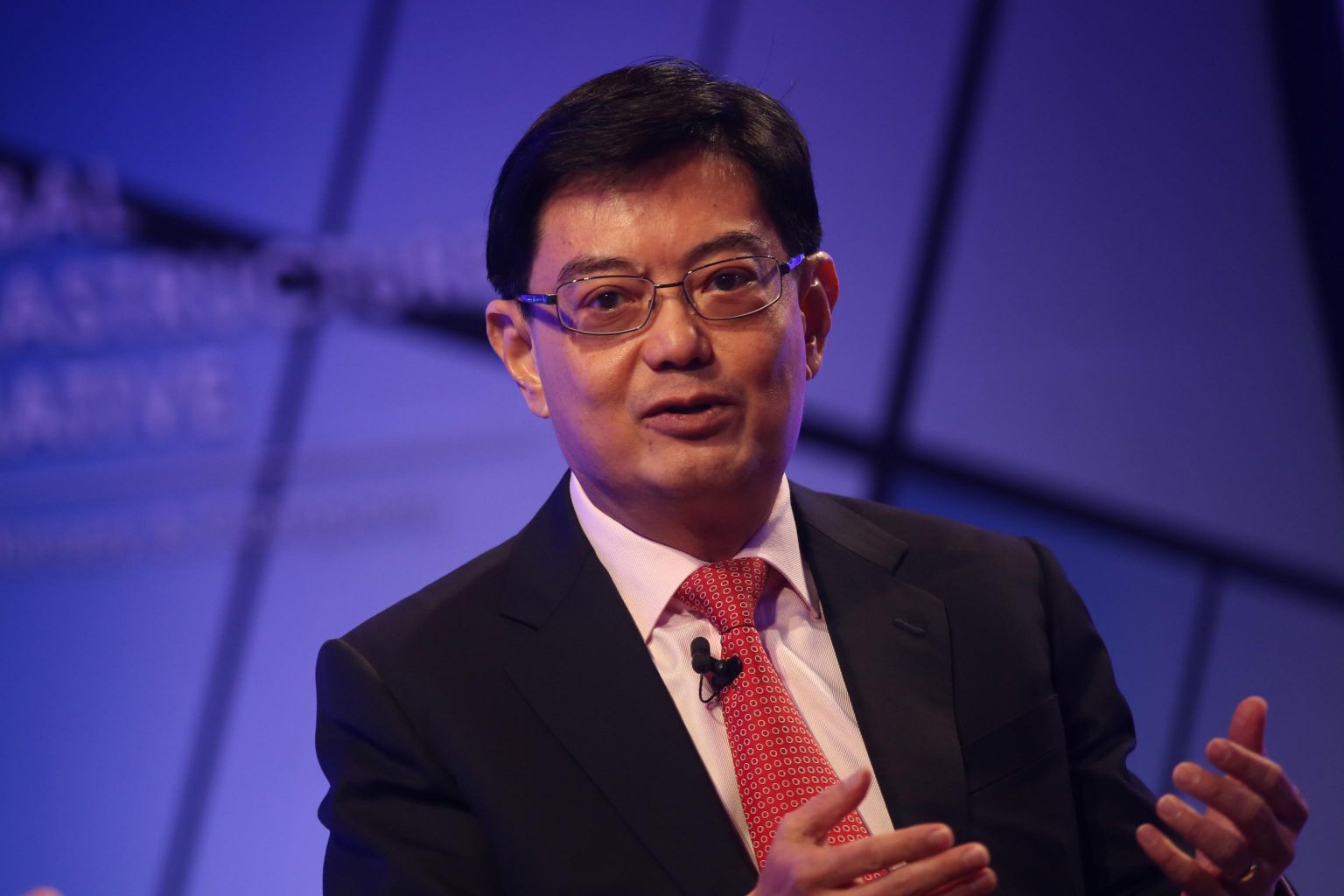Trump-Kim summit: Singapore sanctions on North Korea to remain, says Heng Swee Keat
Sign up now: Get insights on Asia's fast-moving developments

Finance Minister Heng Swee Keat said the summit had been "an important first step towards peace on the Korean peninsula".
PHOTO: ST FILE
TOKYO - Singapore will not ease its sanctions regime against North Korea, Finance Minister Heng Swee Keat said on Wednesday (June 13), in line with the international community.
It had temporarily lifted a blanket suspension of trade with North Korea from June 9 to June 14 ahead of a historic summit between US President Donald Trump and North Korean leader Kim Jong Un in Singapore on Tuesday (June 12).
"The agreement is that the sanctions will not be lifted immediately," Mr Heng told Singaporean media at the end of a six-day visit to Tokyo.
Tuesday's summit meeting, he said, had been "an important first step towards peace on the Korean peninsula, and each of these steps will have to be taken" before sanctions can be lifted.
"A journey of a thousand miles starts with the first step and what we have to do now is to continue to work closely together, all of us internationally, to bring about this denuclearisation," said Mr Heng, who visited finance, technology and robotics firms and met Japanese politicians and businessmen in Tokyo.
Mr Trump told a post-summit press conference in Singapore that the United States will keep in place the crippling sanctions against North Korea, though it pulled the plug on its military's joint war games with the South, describing them as "provocative".
He said that sanctions relief will come only when the North takes concrete steps towards the complete, verifiable, irreversible dismantlement of its nuclear stockpile and ballistic missile arsenal of all ranges.
In November last year, Singapore cut all trade with North Korea in line with toughened sanctions imposed by the United Nations Security Council.
The Singapore Customs had, at the time, warned that first-time offenders can be fined up to $100,000 or three times the value of the goods traded, jailed for up to two years, or both.
As recently as 2015, Singapore was the North's sixth-largest trading partner, with bilateral trade reaching US$29 million.
The temporary easing of sanctions, which ends on Thursday, applied only to delegates importing or exporting goods "for the purpose of the preparations or conduct of the summit meeting".
China on Tuesday proposed that sanctions relief be considered now that the US and North Korea have pledged to work towards denuclearisation. Beijing has been North Korea's main economic benefactor and political ally, though it has signed up for the UN sanctions against its neighbour.
Peace and stability on the Korean peninsula, Mr Heng stressed on Wednesday, is "a prerequisite for our economic cooperation and development".
This echoes Japanese Prime Minister Shinzo Abe's comments at a dinner gathering on Monday, which Mr Heng attended, about the economic benefits that the Asia-Pacific would stand to gain were North Korea to open up its economy.
Mr Abe had said that North Korea was the missing cog in the machinery that is the Asian economy. North Korea becoming connected will "spark rapid advances in the networks connecting the economies and the peoples of countries around Asia".
"North Korea has untouched resources as well as an abundant labour force that is presumably hard-working," he added, vowing to normalise ties and provide economic aid to North Korea once the issues regarding the abduction of Japanese citizens, as well as nuclear and ballistic missiles are comprehensively resolved.


